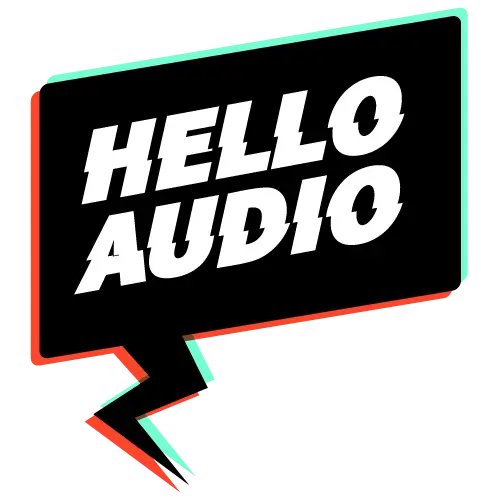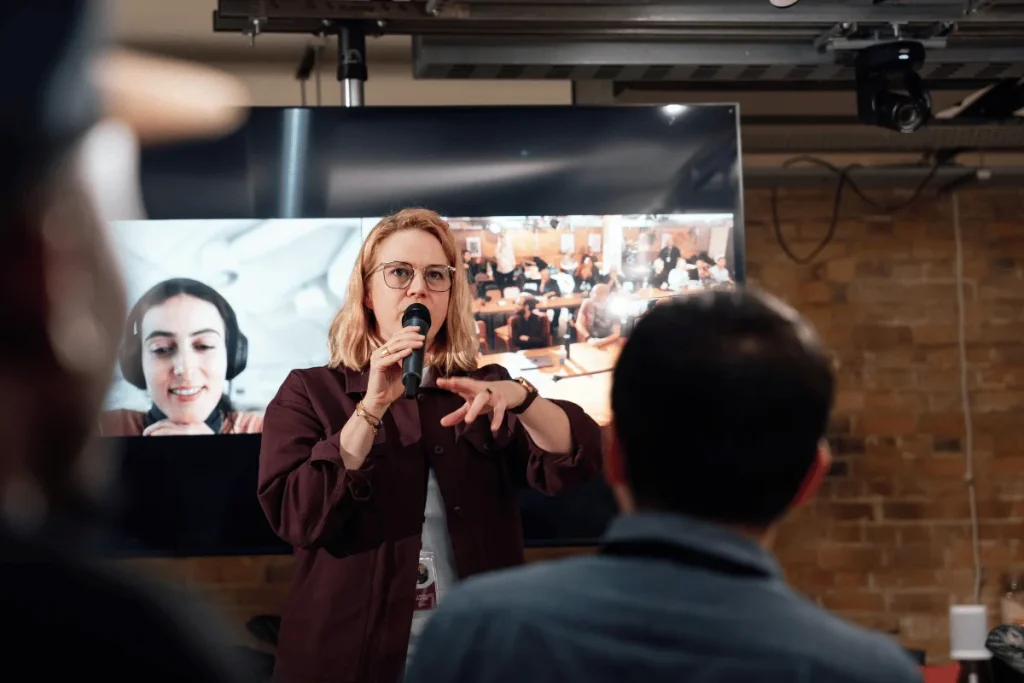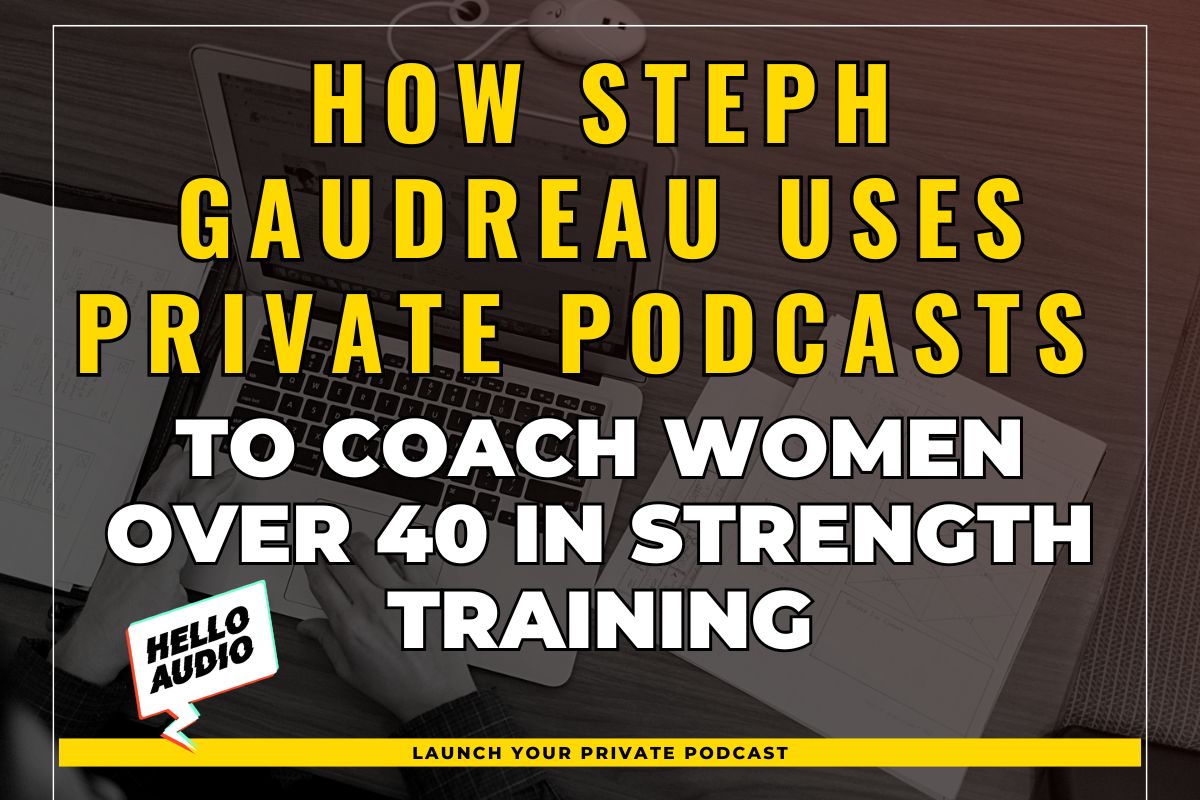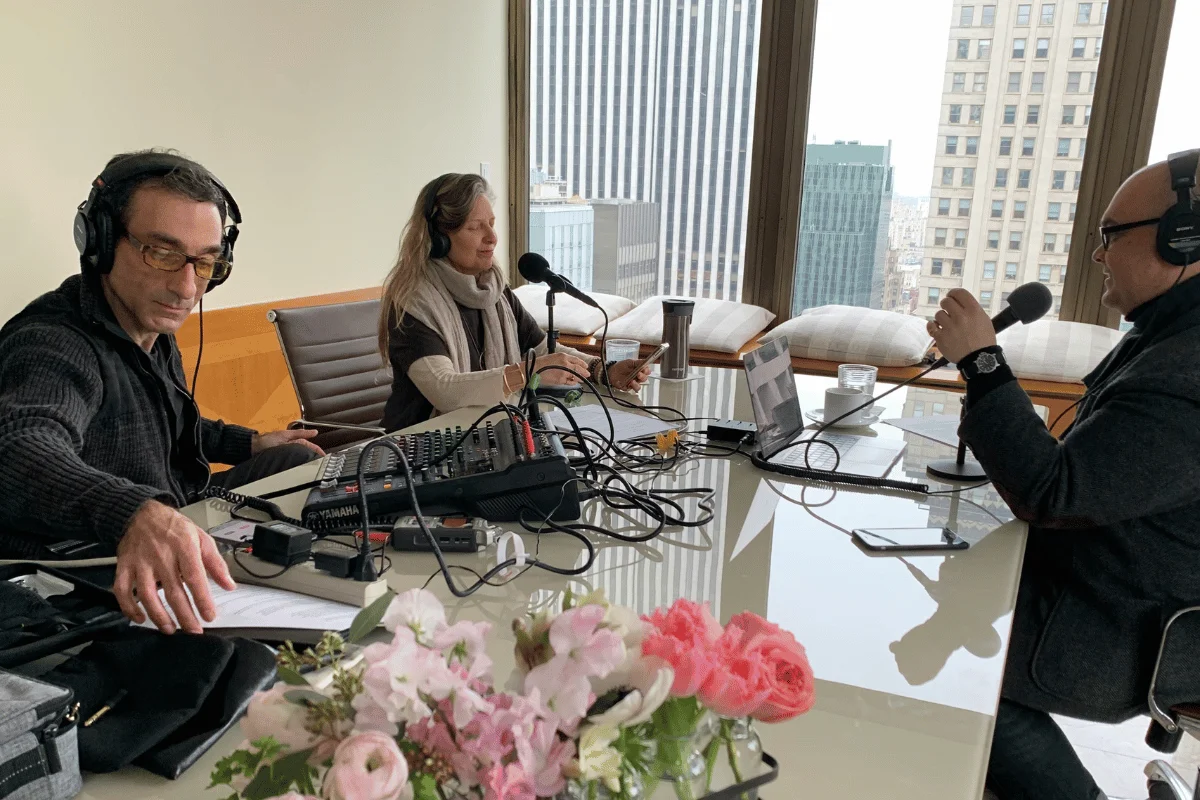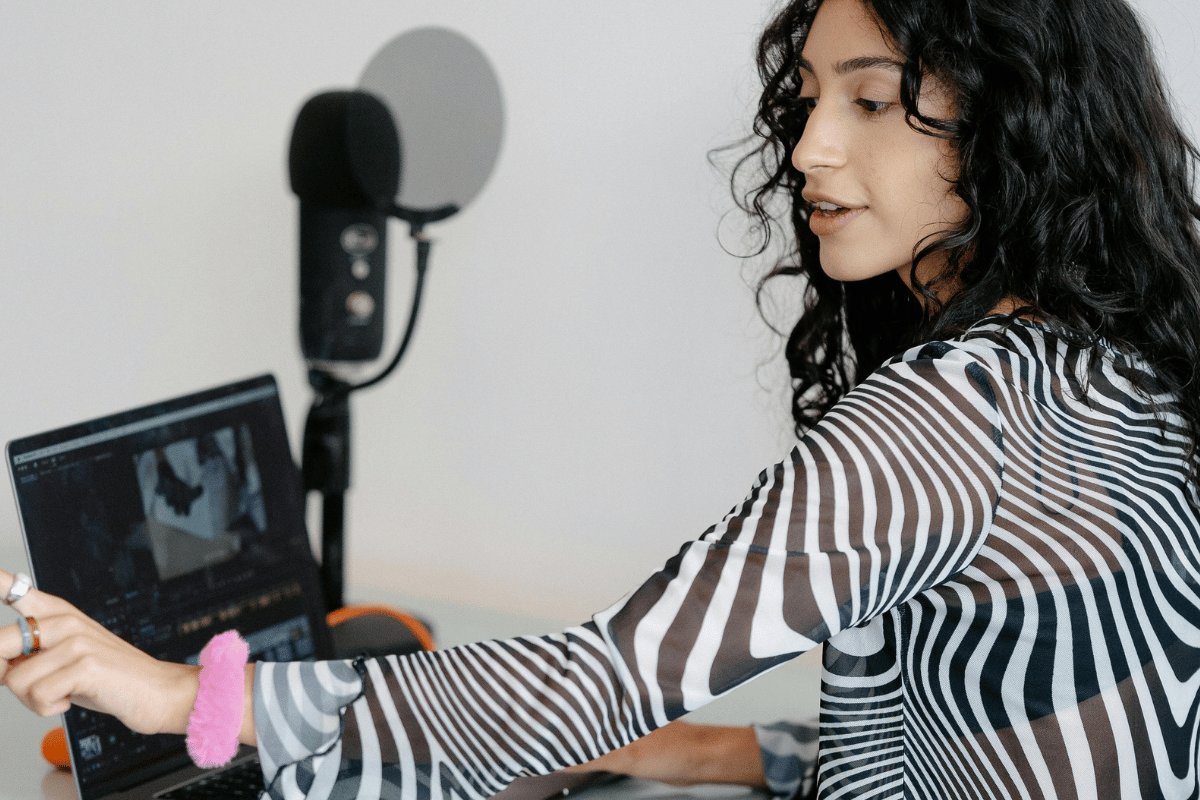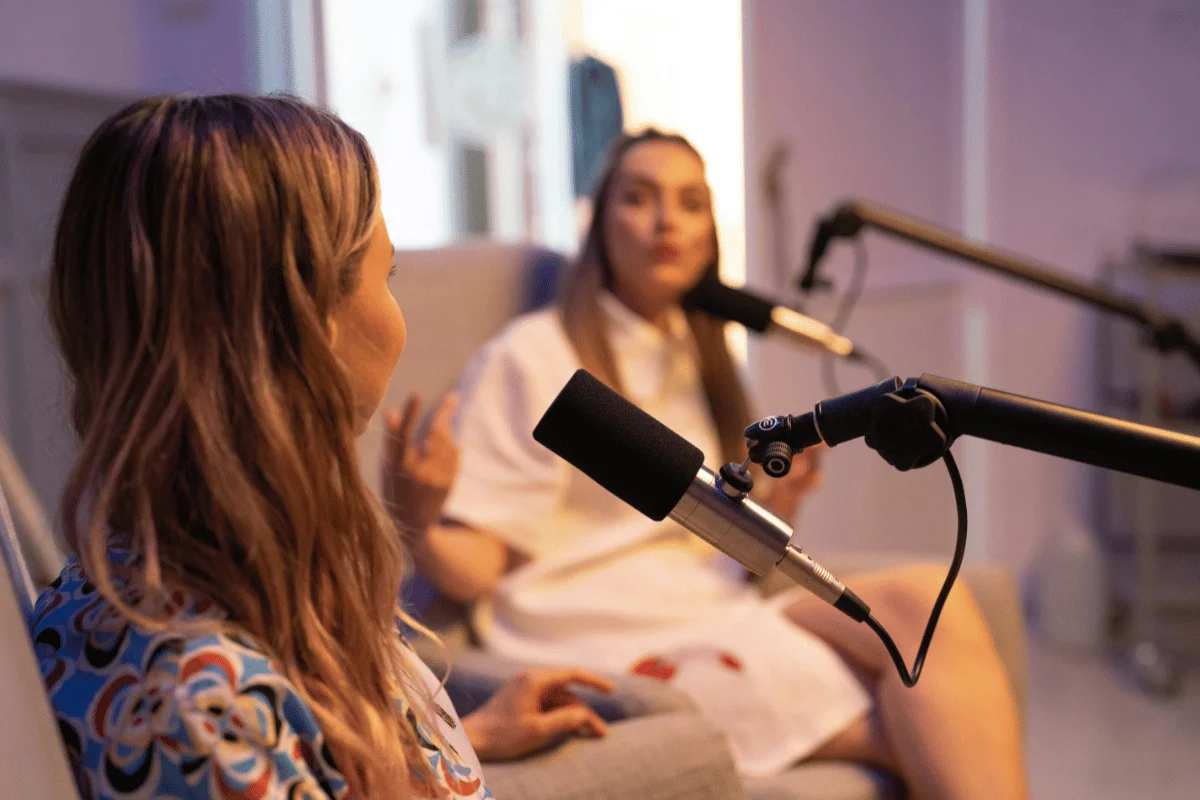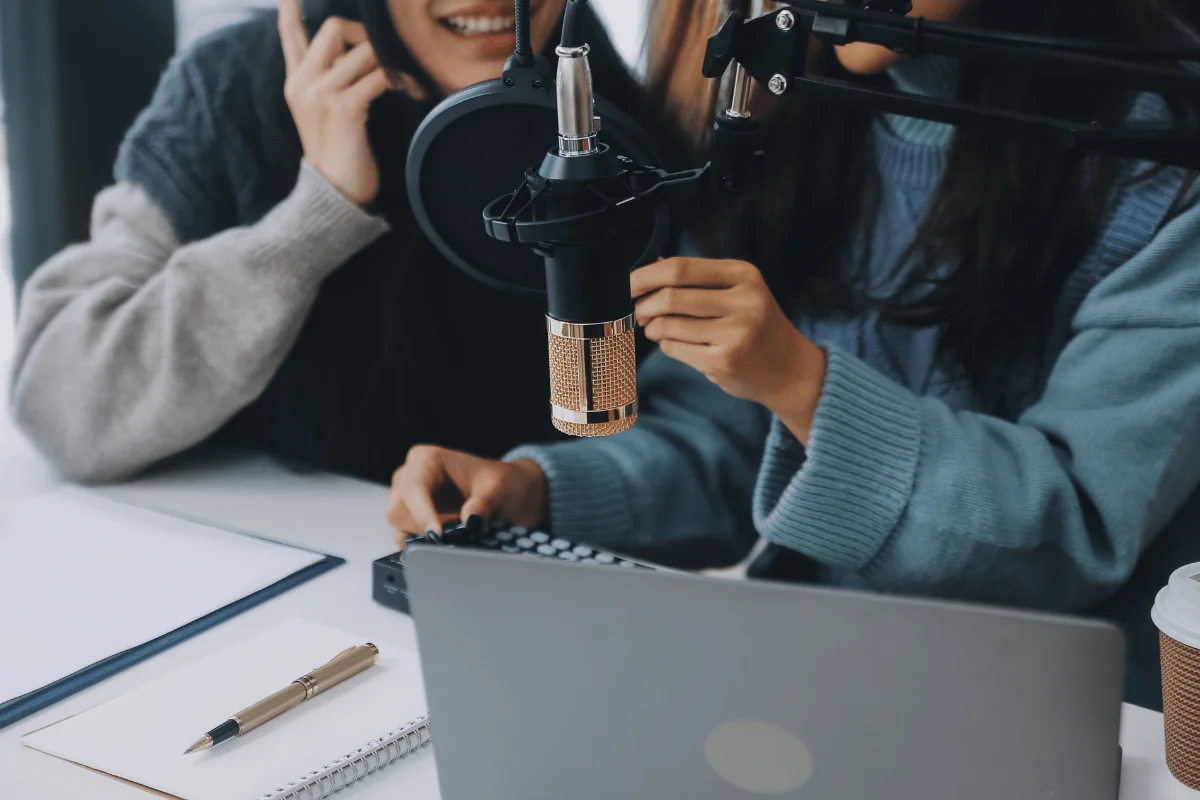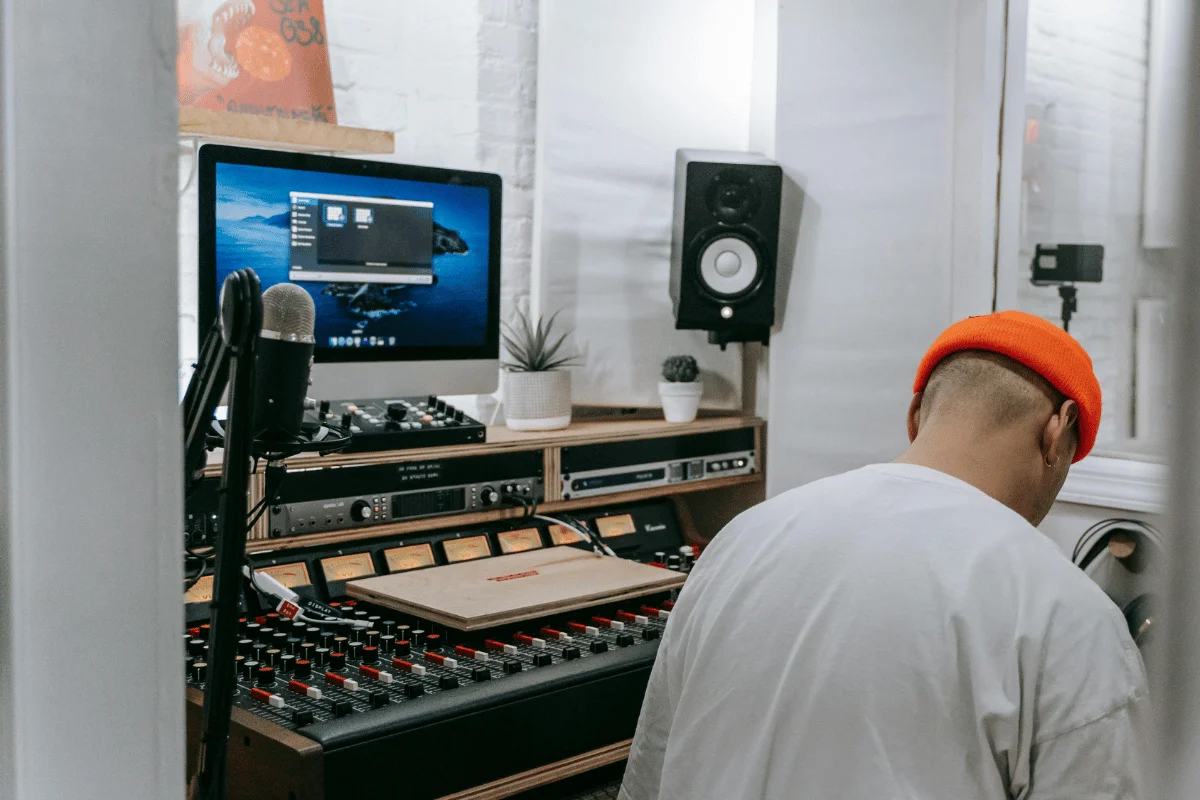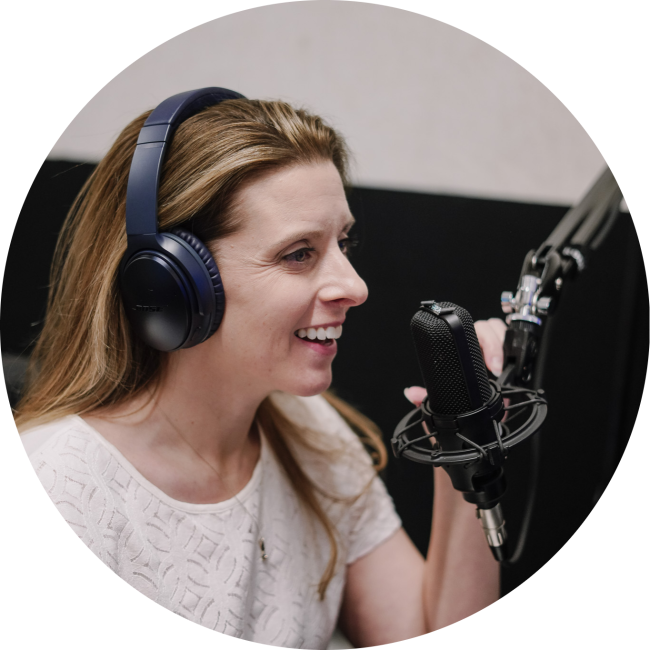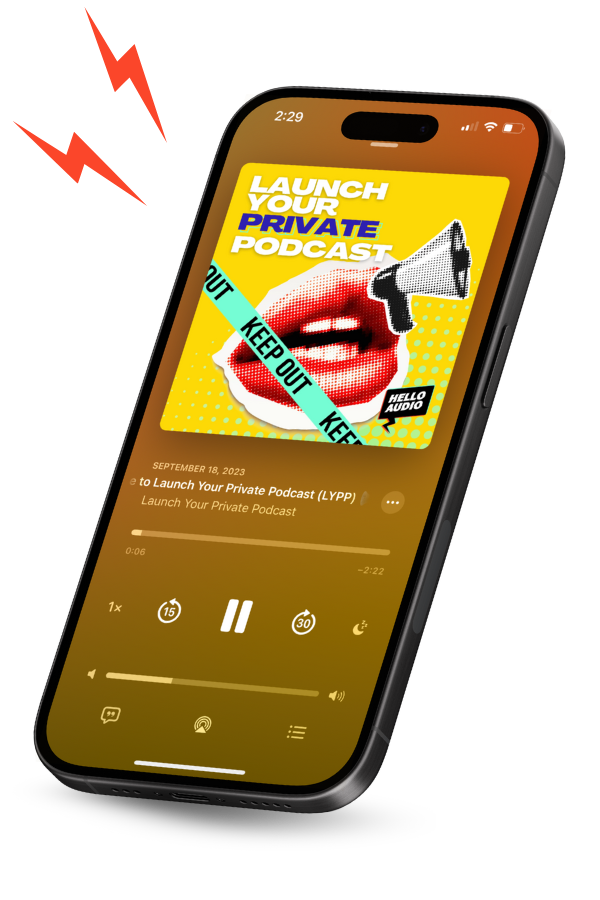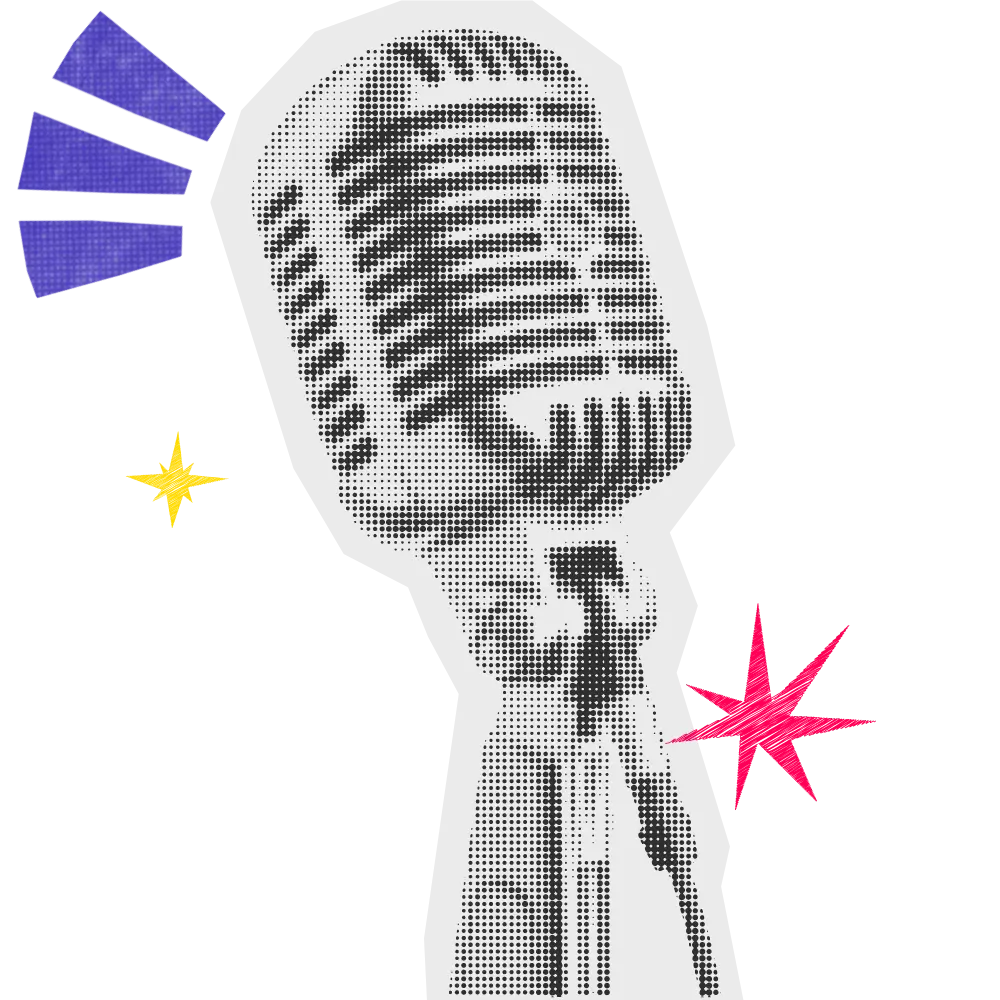If you’re an educator, you know how hard it is to keep learners engaged throughout your session, especially with short attention spans, Zoom fatigue, and overloaded schedules.
But there’s a more effective way to connect your learners. Private podcasting!
Private podcasts offer a flexible, engaging, and screen-free way to deliver course content that sticks. Whether you’re teaching a course or running an evergreen program, they help students keep coming back—and actually completing what they signed up for.
In this blog, we’ll explore how private podcasts can boost course completion and member engagement and how you can start using them today.
Let’s dive in!
TL;DR – How Private Podcasts Can Increase Course Engagement
If you’re short on time, here’s a quick snapshot of why private podcasts are such a powerful tool for boosting student and member engagement:
- Convenient and flexible learning
- More engaging than static content
- Supports repetition and reinforcement
- Creates a personalized learning experience
- Enables progress tracking
- Builds a sense of belonging
- Reduces stress and learning fatigue
- Repurposes and extends your content
If you want to experience increased course engagement, start your private podcast with Hello Audio.
It is built for educators, coaches, and content creators who run online courses or are into digital content creation. You can easily turn your existing course video, Zoom calls, or lesson recordings into private podcast feeds, which your students can access from any podcast app.
With one-click distribution, listener analytics, and seamless access controls, Hello Audio helps you engage learners without needing any tech skills. Sign up today!
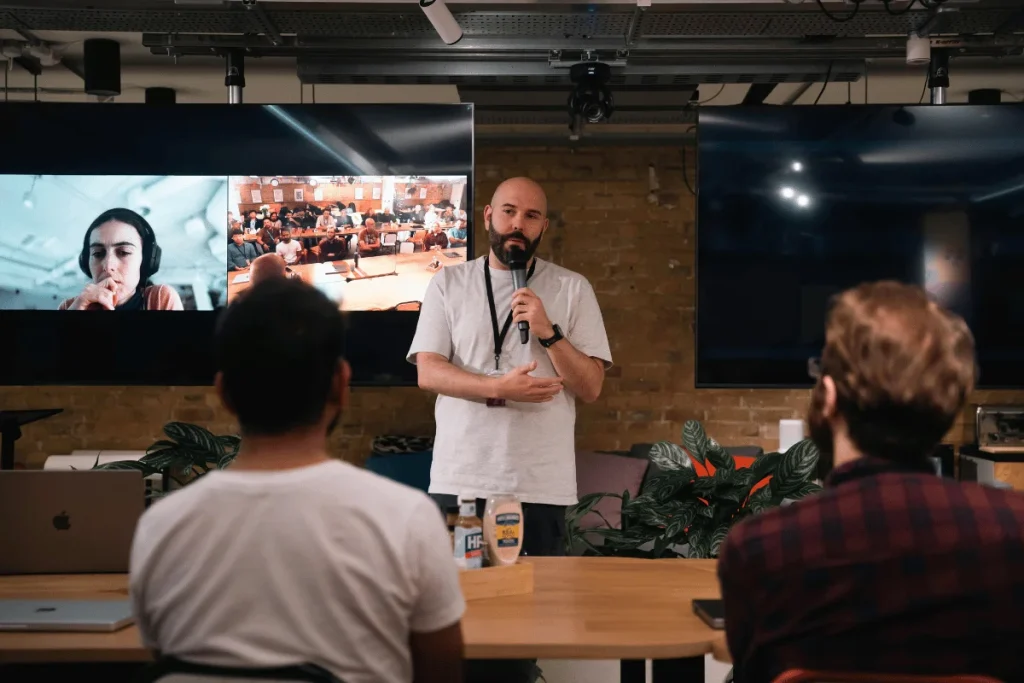
What Is a Private Podcast and How Does It Work for Educators?
A private podcast is a form of audio content that is not available to the general public. Unlike traditional podcasts found on platforms like Apple Podcasts or Spotify, a private podcast is restricted to those who have access to it.
So, what does it mean for educators?
Private podcasts are a fresh idea and a flexible tool for educators, course creators, and trainers. Instead of sharing content through static PDFs or lengthy Zoom recordings, you can deliver information through audio episodes that students can access on their own time.
Here are ways you can use private podcasts as an educator:
- Reach learners on the go, supporting different learning styles.
- Supplement course modules with audio summaries or bonus insights.
- Provide weekly audio reflections or recaps to reinforce key lessons.
- Repurpose your entire course into a private podcast for screen-free, flexible learning.

How to Structure Podcast Episodes for Maximum Impact
A great podcast isn’t just about what you say but also how you deliver it. The right structure helps your audience stay focused, absorb key takeaways, and come back for more.
Here’s how you can do it:
- Hook: Start with a quick, engaging moment to grab attention. Pose a question, share a surprising fact, or preview the big idea of the episode. Think of it like the headline of a great blog post.
- Intro: Briefly introduce yourself and the topic. If this is part of a series or course, remind listeners how it fits into the broader learning experience.
- Main Content: This is where all your teaching comes into action. Break your content into clear segments, walk through a step-by-step process, discuss main tips or takeaways, and share a story or case study.
- Engagement Break: If you’re planning a longer episode, insert a quick moment to interact. You can ask a reflection question, encourage a quick activity, or mention a downloadable resource.
- Summary and Takeaways: Wrap up by summarizing the key points. Reinforce what the listener should remember or do next.
- Outro: Close with a thank-you and a simple call to action, such as subscribe, share, or tune in for the next episode. Being consistent with this section builds a connection and keeps listeners returning.
You can also check out this detailed guide on how to structure a podcast for higher retention.
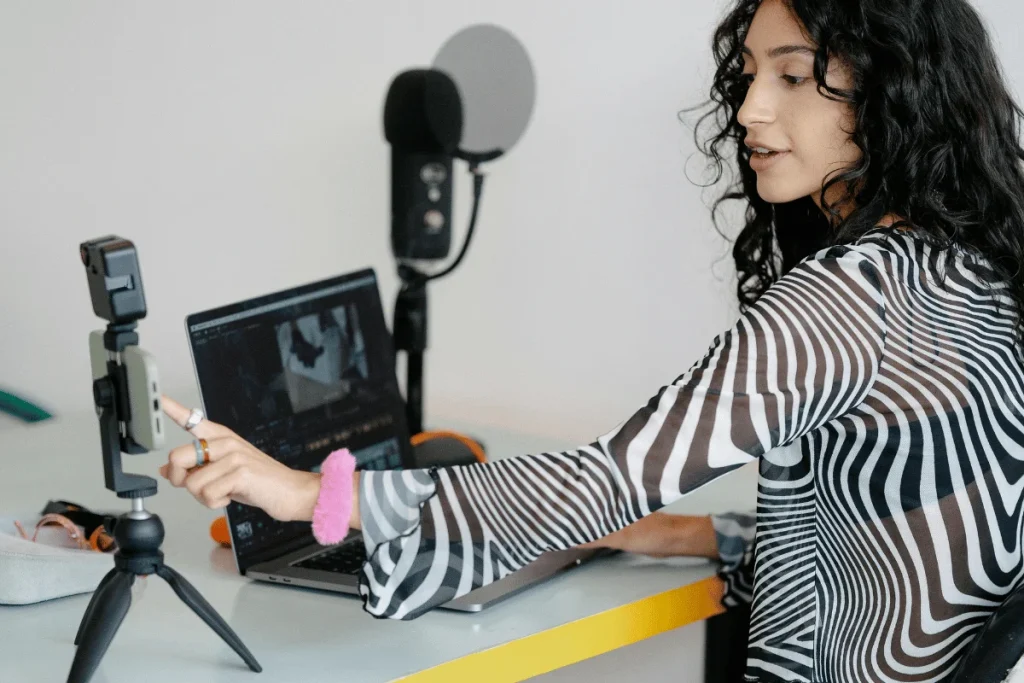
How to Promote Private Podcasts to Your Students and Members
After you create a great podcast, the next thing is to make sure your audience actually listens to it. Since private podcasts don’t show up on public directories, promotion is essential.
Here’s how to effectively promote your private podcast:
1. Introduce It Early and Often
Mention your podcast right from the start of your course or membership program.
Let your students or members know that it is specially designed to help them learn on the go, review concepts, or get exclusive insights.
2. Make Access Easy
Since private podcasts aren’t available publicly, make sure instructions for access are clear and simple:
- Provide a step-by-step guide on how to subscribe using a private feed link.
- Introduce visuals or a quick video tutorial if needed.
- Send direct links in welcome emails, your course dashboard, or the member portal.
Hello Audio offers user-friendly ways to distribute private feeds with minimal friction. Watch the demo video to learn how.
3. Make it the Core Learning Experience
Make the podcast the central format for delivering your course content. Structure your curriculum around podcast episodes and guide learners through tasks and reflections tied directly to what they’ve heard:
- Reference episodes as the main lessons within your syllabus or module pages.
- Include “listen and reflect” prompts, worksheets, or quizzes based on each episode.
- Use live sessions or online community discussions to deepen their understanding of the content already covered in the podcast.
4. Highlight the Value
Portray the podcast as a primary source to deliver a core learning experience that is accessible, complete, and intentionally designed for audio-first engagement.
Additionally, explain what listeners will gain in addition to the main course. Will they hear bonus lessons? Module recaps? Expert interviews?
5. Reinforce Podcast Use Throughout the Course
Continue reminding learners to use the podcast across various touchpoints, such as inside your course portal, during live sessions, or online community platforms.
Reinforcing the podcast as their go-to learning format helps build listening habits and keeps engagement high throughout the learning journey.
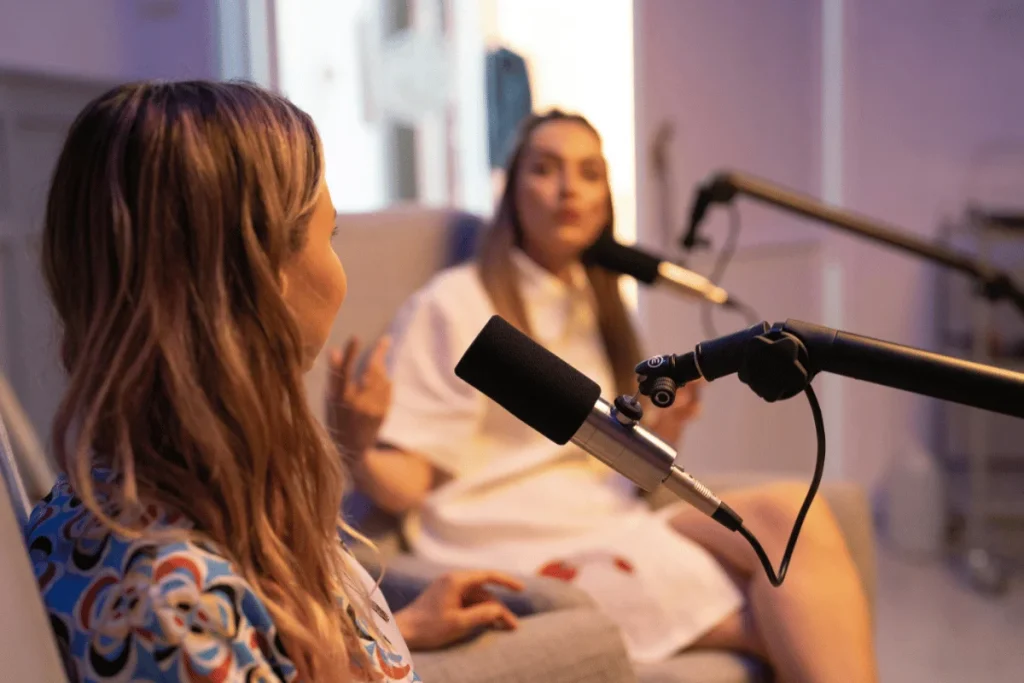
How Private Podcasts Can Increase Course Completion and Membership Engagement
Getting students and members to complete an online course or stay active in a membership community can be difficult. Through private podcasts, you can deliver content in a format that makes the learners feel more personal, flexible, and less overwhelmed.
Here’s how private podcasts can make a measurable difference:
Convenient and Flexible Learning
Private podcasts can be accessed from anywhere at any time.
This format gives learners more opportunities to engage, especially those with busy schedules or struggling to sit through long video lessons.
More Engaging than Static Content
Unlike a wall of text or another screencast, podcasts can bring content to life. Through audio, you can:
- Share personal stories
- Include guest interviews
- Inject real-life examples
- Use a conversational tone and humor.
The unique inclusion keeps listeners engaged and makes your course feel more human.
Supports Repetition and Reinforcement
Audio content is easy to replay and revisit. Learners can listen multiple times to reinforce key concepts or review material before a quiz or live session.
This improves your retention rate and promotes deeper learning.
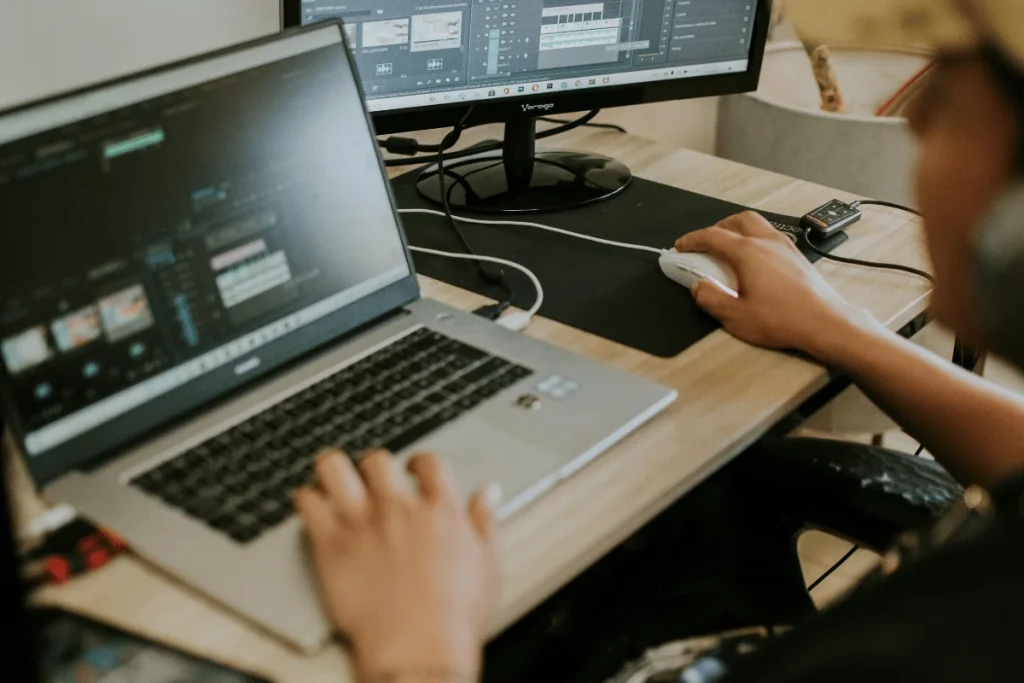
Creates a Personalized Learning Experience
Private podcasts allow you to segment your content and speak directly to different groups of learners. You could:
- Offer bonus content to advanced users.
- Share motivational messages with those who fall behind.
- Tailor the series to specific roles or learning tracks.
The result? Students feel like the content is made for them, encouraging them to complete the course.
Enables Progress Tracking
Many private podcast platforms (like Hello Audio) provide listener analytics, so you can track who listened to your podcast, how far they got, and which episodes performed best.
This helps you identify drop-off points and proactively support disengaged listeners. With accurate data, you can refine your content and provide targeted encouragement, in turn boosting engagement and the chances of the listener finishing the course.
Builds a Sense of Belonging
With private podcasts, you can foster a sense of community among your listeners. You can encourage this by:
- Sharing shoutouts or success stories
- Answering student questions in episodes
- Promoting discussions in your course group or community platform
By doing this, learners will feel like part of something bigger, which can boost connection and commitment.
Reduces Stress and Learning Fatigue
Audio learning is a screen-free format, which puts less pressure on the students.
For audiences overwhelmed by Zoom calls or long-form lectures, podcasts offer a calm, engaging alternative that fits naturally into their lives.
Repurposes and Extends Your Content
Private podcasts allow you to create something new out of your old content. You can turn lesson notes into quick summaries, convert live Q&A sessions into bonus episodes, or deliver blog posts or newsletters in audio form.
And what better platform than Hello Audio to help you repurpose your content? You don’t have to be a tech whiz or a skilled podcaster to create a podcast. Our platform is an easy and effective way to repurpose your content.
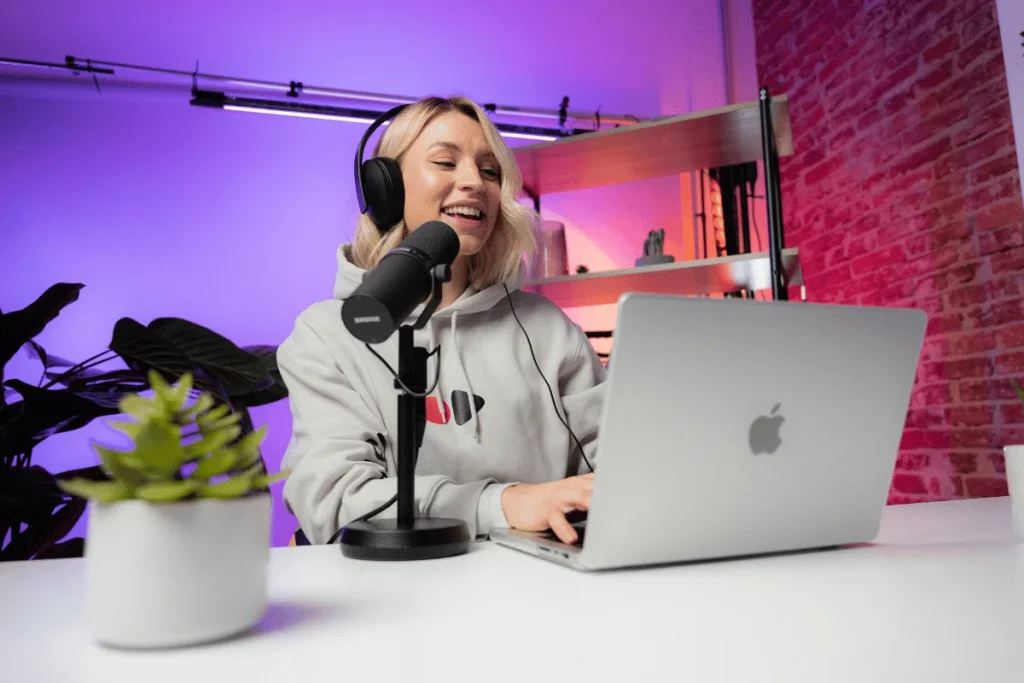
Common Mistakes to Avoid with Private Course Podcasts
Many course creators jump in with good intentions but make a few mistakes that reduce effectiveness or frustrate learners.
The most common pitfalls that you can avoid include:
- Lack of clear access instructions: If your audience can’t figure out how to access the podcast, they won’t use it. Always provide clear, step-by-step instructions on how they can add their private RSS feed to their preferred podcast app. Platforms like Hello Audio generate this feed automatically; you just need to guide them on accessing it.
- Treating the podcast as a bonus: Private podcasts work best when they’re integrated into the course, not treated as a side project. Plan episodes to align with course modules, learning goals, or major milestones.
- Creating episodes that are too long or too short: Busy learners prefer compact, focused episodes, especially if they’re reviewing material or listening on the go. Respect their time by keeping things clear and purposeful. However, if the episode is too short, you may not be able to cover the content comprehensively.
- Not using a consistent publishing schedule: Just like with in-person sessions, consistency builds trust and anticipation, especially for an online course. Whether you release new episodes weekly, biweekly, or thrice a week, stick to a pattern.
- Neglecting audio quality: Bad audio makes a podcast feel unprofessional and hard to follow. While you don’t need a full studio setup, using a good mic and quiet space makes a big difference.
- Skipping calls to action: Even in a private podcast, you need to guide your audience. Whether it’s solving a worksheet, answering a reflection question, or checking out the next module, give clear, actionable direction at the end of each episode.
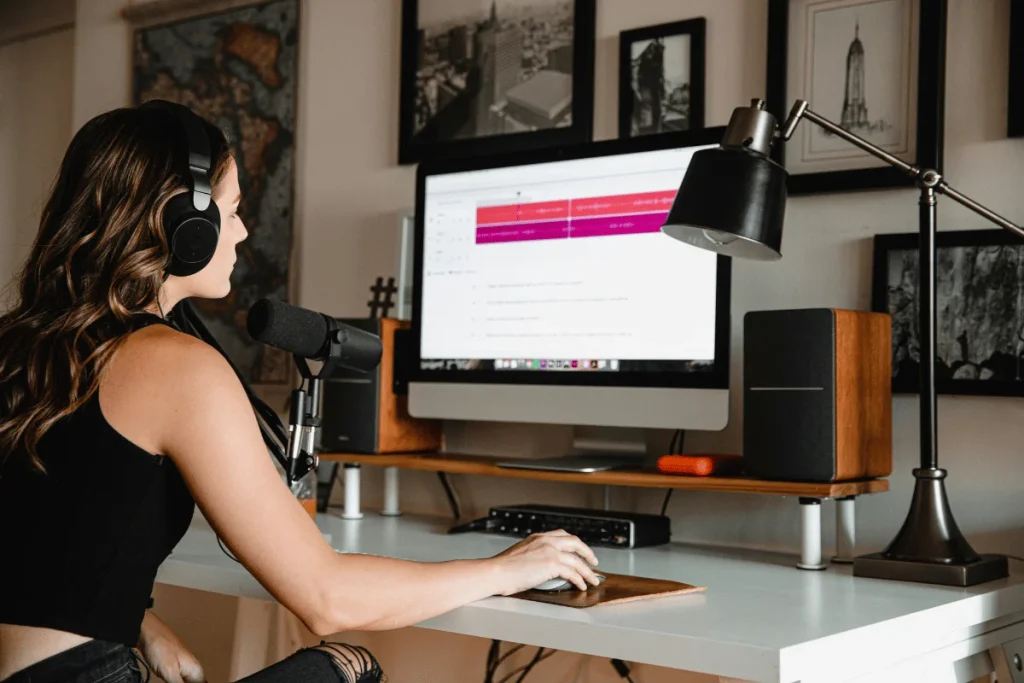
Frequently Asked Questions (FAQs)
If you’re more curious about how to use a private podcast as an educator, here are some commonly asked questions to help you:
What Equipment Do You Need to Start a Private Podcast?
You don’t need a professional recording studio to create a great private podcast. Here’s a simple setup to get started:
- A USB microphone
- Recording software
- Any decent pair of headphones
- Private hosting platforms like Hello Audio
You can start with a basic setup and always upgrade later when your private podcast picks up more members.
How Often Should You Release Private Podcast Episodes?
It depends on your course structure and goals. Here are some common approaches:
- Weekly: Great for maintaining momentum and building a habit with your learners.
- Per Module: Release an episode with each course module to provide context, summaries, or bonus reflections.
- Seasonal or Drip: For cohort-based or time-bound courses, you can schedule episodes to align with the release of new materials.
Being consistent matters more than the frequency of episodes. Stick to your rhythm so that learners know what to expect.
Can Private Podcasts Replace Traditional Course Content?
Yes, in many cases, private podcasts can replace traditional course content. Instead of relying on lengthy slide decks, videos, or text-heavy modules, educators can deliver entire courses through audio.
With a structured series of episodes, you can walk learners through key concepts, frameworks, exercises, and reflections, all in a format that’s flexible, screen-free, and easy to consume on the go.
Private podcasts give your learners more ways to stay engaged and move forward. That’s why you need to use private podcasts even if your content is visual.
Conclusion
Private podcasts create a friction-free, deeply engaging way to connect with your learners. By meeting the audience where they are, you can reinforce key lessons, reduce screen burnout, and build stronger relationships that lead to higher course completion and long-term loyalty.
Buckle up if you want to start a private podcast for your course.
Hello Audio makes launching your private podcast simple. With features like easy content uploads, private feed protection, engagement analytics, and mobile-friendly listening across all major podcast apps, you can create podcasts without any technical hassle.
From repurposing your course modules to creating bonus content, Hello Audio helps you deliver efficiently and make an impact. Sign up today!

